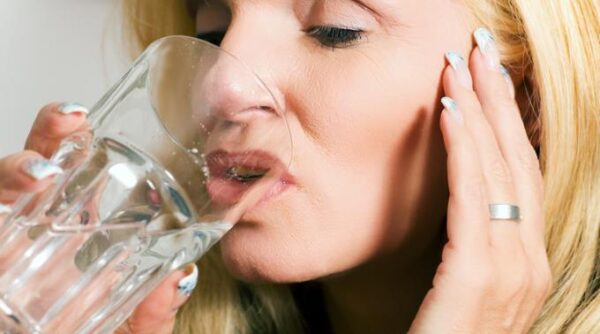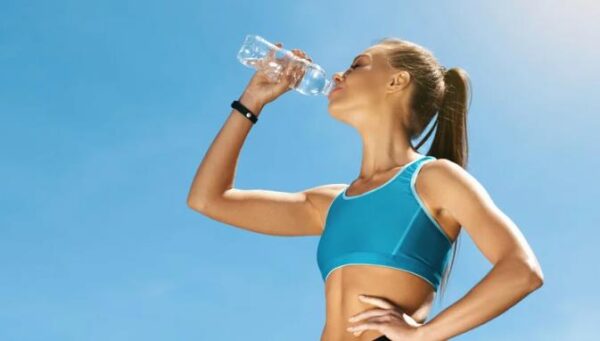Water pills, or diuretics, are commonly prescribed to help the body eliminate excess fluid, often used to manage conditions such as hypertension, heart failure, and certain types of kidney or liver disease. While effective for these purposes, diuretics can significantly alter your body’s water balance and electrolyte levels. This adjustment raises an important question for those prescribed such medication: How much water should I drink while taking water pills?
Generally, when taking water pills, you do not need to drink extra water unless your doctor tells you to. The answer isn’t straightforward, as it involves understanding how these medications affect your hydration levels and what your specific body needs to maintain a healthy balance. Drinking either too much or too little water while on diuretics can lead to complications, making it crucial to find the right balance.
In this article, we’ll explore the mechanisms by which water pills affect your hydration and the factors that determine individual water needs. We will also provide guidance on monitoring and adjusting your water intake. Whether you are an athlete, deal with a sedentary lifestyle, or fall somewhere in between, understanding how to manage your hydration while on water pills is key to maintaining your health and well-being.
How Much Water Should I Drink While Taking Water Pills?

What is Water Pills?
Water pills, scientifically known as diuretics, are medications designed to increase the amount of water and salt expelled from the body as urine. There are several types of diuretics, each working in a slightly different way and used to treat various conditions. Understanding these can help you better manage your hydration levels while on these medications.
Types of Diuretics
- Thiazide diuretics: Often used to treat high blood pressure and edema, these encourage your kidneys to pass more sodium into your urine, which pulls water from your blood, decreasing the amount of fluid flowing through your veins and arteries.
- Loop diuretics: Stronger than thiazide diuretics, loop diuretics are used in conditions requiring rapid fluid removal, like heart failure. They act on the kidneys’ loop of Henle to prevent the reabsorption of sodium and chloride, leading to a significant increase in urine output.
- Potassium-sparing diuretics: Unlike other diuretics, these help save potassium as they flush out water and sodium, and are often used in combination with other diuretics to prevent potassium levels from falling too low.
How Water Pills Affect Your Body?
Diuretics increase urine production, which can lead to dehydration if not managed correctly. This is because as water is expelled from the body, it doesn’t just remove excess fluid but can also reduce normal hydration levels, affecting cellular functions and overall health.
The increased loss of sodium and potassium (except in potassium-sparing diuretics) can also disrupt your electrolyte balance, which is crucial for many bodily functions, including nerve signaling and muscle contraction.
Why It Matters?
For individuals on water pills, understanding the type and function of their prescribed diuretic helps in anticipating the effects it may have on their body’s water and electrolyte levels. This knowledge is crucial in adjusting daily water intake to maintain balance and avoid potential health issues like dehydration or electrolyte imbalance.
Determining Your Hydration Needs

Hydration is a critical aspect of health, impacting everything from physical performance to cognitive function. For individuals taking water pills, determining the right amount of water to drink can be a nuanced challenge. Several factors influence hydration needs, especially when diuretics are involved. Here’s how you can assess and determine your personal hydration requirements.
Factors Influencing Water Needs
- Body Weight and Composition: Generally, heavier or more muscular individuals require more water. A common recommendation is to drink between half an ounce and an ounce of water for each pound you weigh, per day.
- Climate and Environment: Hot or humid weather can lead to increased sweat and higher fluid loss, necessitating a greater intake of water. Conversely, cold environments might reduce the sensation of thirst but not necessarily the need for fluids.
- Activity Level: More active individuals, particularly those who engage in vigorous exercise, have higher hydration requirements due to sweat loss.
- Health Status and Age: Certain health conditions such as kidney stones or urinary tract infections might require increased fluid intake. Older adults also may need to monitor their water intake more closely as the sensation of thirst diminishes with age.
- Effect of Diuretics: Diuretics modify your body’s water and salt elimination processes, which can complicate standard hydration guidelines. The type of diuretic, the dosage, and the medical condition being treated will affect how much you should drink.
Signs of Proper Hydration
- Urine Color: One of the simplest ways to gauge your hydration is by looking at the color of your urine. Light yellow or straw-colored urine generally indicates proper hydration, whereas a dark yellow or amber color might suggest dehydration.
- Physical Symptoms: Consistent, mild headaches, dry skin, or dizziness can be signs of inadequate hydration.
Guidelines for Adjusting Water Intake
Given these variables, individuals on water pills should start by understanding the specific effects their prescribed diuretic has on their body, particularly concerning how it alters fluid and electrolyte balance. From there, adjusting water intake should be done gradually and ideally under the guidance of a healthcare provider who can help tailor recommendations based on individual health needs and daily observations of hydration indicators.
Monitoring your body’s response, keeping track of urine color, and being aware of any symptoms of dehydration are practical steps in managing your hydration effectively while on water pills. This personalized approach ensures you maintain optimal hydration levels, enhancing your health and the efficacy of your treatment regimen.
Hydration While on Water Pills
Maintaining optimal hydration while taking water pills (diuretics) is crucial due to their effect on your body’s fluid and electrolyte balance. Proper hydration is essential not just for kidney function and flushing out toxins but also for maintaining blood pressure and overall cellular health. Here’s how you can manage your hydration effectively while on diuretics.
Understanding the Impact of Diuretics

Water pills increase urine production, which helps remove excess fluid from the body. This process, however, can lead to a reduction in overall body water content, increasing the risk of dehydration if not properly managed. It’s important to balance the elimination of excess fluids while ensuring the body remains adequately hydrated.
Recommended Water Intake
- Consult Your Doctor: The first step in determining how much water you should drink while on diuretics is to consult your healthcare provider. They can provide guidelines based on the specific type of diuretic you are using, your health condition, and other individual factors.
- Adjust Intake Based on Symptoms: Pay attention to signs of dehydration, such as dry mouth, fatigue, or light-headedness. If these occur, increasing fluid intake is often necessary. Conversely, symptoms of overhydration, such as feeling bloated, nausea, or confusion, might indicate that you should reduce your water intake.
- Monitor Urine Output and Color: Keeping an eye on the quantity and color of your urine can help guide your hydration decisions. Ideally, urine should be pale yellow. If it’s consistently clear, you may be drinking too much; if it’s dark, you may not be drinking enough.
Balancing Electrolytes
While focusing on water intake, it’s equally important to maintain a balance of electrolytes, which can be disrupted by diuretics. Incorporating electrolyte-rich foods or drinks, especially those containing potassium and magnesium, can help offset losses due to increased urine production.
Practical Tips for Hydration
- Set Regular Reminders: To maintain hydration, it may be helpful to drink small amounts of fluids at regular intervals rather than large amounts infrequently.
- Include Foods with High Water Content: Fruits and vegetables such as cucumbers, tomatoes, oranges, and melons can contribute to overall fluid intake.
- Avoid Dehydrating Substances: Minimize caffeine and alcohol consumption, as these can increase fluid loss.
Proper hydration while on water pills doesn’t just prevent dehydration; it supports the therapeutic goals of using diuretics, such as managing blood pressure and reducing heart strain. By carefully monitoring your fluid intake and staying attuned to the needs of your body, you can effectively manage your hydration levels and maintain optimal health while on diuretic therapy.
Health Considerations
When taking water pills, it’s crucial to understand the broader health implications to ensure safe and effective use. Diuretics, while beneficial for managing various medical conditions, can also pose risks if not managed carefully, particularly in terms of hydration and electrolyte balance. Here are key health considerations to keep in mind.
Potential Risks of Dehydration

Dehydration is a significant risk when using diuretics. As these medications increase urine output, they can reduce body water content more rapidly than they can be replenished, especially if fluid intake is not adequately increased.
Dehydration can lead to:
- Kidney damage: Reduced hydration can affect kidney function, potentially leading to kidney stones or, in severe cases, kidney failure.
- Electrolyte imbalances: Essential minerals such as potassium, sodium, and magnesium can become depleted, affecting muscle function and heart rhythm.
- Reduced blood volume: Less fluid in the body can lead to a drop in blood pressure, which might cause dizziness, fainting, and, in severe cases, shock.
Monitoring for Adverse Effects
It’s important to watch for signs that might indicate health issues related to diuretic use:
- Symptoms of dehydration: These include thirst, dry mouth, dry skin, light-headedness, headache, and dark-colored urine.
- Signs of electrolyte imbalance: Muscle cramps, weakness, tiredness, confusion, and irregular heartbeat are all warning signs of potential problems.
Special Considerations for Certain Populations
Certain individuals may need to exercise extra caution when using diuretics:
- Elderly patients: Older adults are generally more susceptible to the effects of dehydration and are more likely to have renal impairment, which can be exacerbated by diuretics.
- Athletes: Those engaged in intense physical activity may lose significant electrolytes through sweat, and diuretic-induced dehydration can further complicate fluid balance and performance.
- Individuals with comorbid conditions: Those with diabetes, renal disease, or heart conditions should manage diuretic use carefully, as these conditions can complicate the effects of dehydration and electrolyte imbalance.
When to Consult Your Doctor
Regular consultations with your healthcare provider are essential when managing treatment with diuretics. These discussions should include:
- Adjusting dosage: Based on your response to the medication and any side effects you experience.
- Reviewing symptoms: Discuss any new or worsening symptoms to adjust treatment plans as necessary.
- Periodic testing: Routine blood tests to monitor electrolyte levels and kidney function can help prevent complications.
Adopting a proactive approach to managing your health while on water pills is critical. By staying informed, monitoring your body’s responses, and maintaining open communication with your healthcare provider, you can minimize risks and optimize the therapeutic benefits of diuretic treatment.
Monitoring Your Hydration

When taking water pills, closely monitoring your hydration status is crucial to ensure that you remain safely hydrated without tipping into dehydration or overhydration. This balance is essential for maintaining optimal health and the effectiveness of the diuretic treatment. Here are practical strategies for effectively monitoring your hydration.
Daily Water Intake Tracking
- Measure Fluid Intake: Keeping a daily log of your fluid intake can help you stay on track. Record all fluids consumed, including water, tea, coffee, and other beverages. It’s also helpful to note the output if possible, especially for those with conditions that require precise fluid management.
- Set Hydration Goals: Based on advice from your healthcare provider, set a daily fluid intake goal. Use a marked water bottle to help track how much water you drink throughout the day.
- Use Technology: There are numerous apps available that can remind you to drink water at regular intervals and track your intake. These tools can be incredibly helpful for maintaining hydration discipline.
Observing Urine Output and Color
- Check Urine Color: Urine color is a quick and effective indicator of hydration levels. Pale yellow urine usually indicates adequate hydration, whereas dark yellow or amber suggests dehydration. Clear urine might indicate overhydration.
- Monitor Frequency: Pay attention to how often you urinate. A significant decrease or increase in frequency can indicate hydration issues.
Recognizing Symptoms of Imbalance
- Symptoms of Dehydration: These may include persistent thirst, dry or sticky mouth, lethargy, dry skin, headache, and dizziness.
- Symptoms of Overhydration: Look for signs such as nausea, headache, confusion, or disorientation, which can occur if the body takes in or retains more fluid than the kidneys can remove.
Adjusting Intake According to Symptoms
- React to Signs: If you notice symptoms of dehydration, increase your fluid intake moderately and observe if symptoms improve. If symptoms of overhydration occur, reduce fluid intake and consult your healthcare provider.
- Consider Environmental Factors: Adjust your water intake based on weather conditions and activity levels. Hotter temperatures and increased physical activity can increase fluid requirements.
Routine Check-ups
- Regular Medical Review: Regular check-ups with your doctor are vital, especially when you are on medication like diuretics that affect fluid and electrolyte balance. These visits should include discussions about hydration and any adjustments needed in your medication or lifestyle.
- Blood and Urine Tests: Periodic tests can help monitor kidney function and electrolyte levels, providing a more detailed picture of how your body is handling the diuretic therapy and your hydration status.
Effective hydration monitoring is a dynamic process that requires adjusting to the ongoing needs of your body, particularly when under the influence of diuretics. By staying vigilant and proactive in tracking and managing your fluid intake, you can help prevent the complications associated with improper hydration while ensuring that your treatment remains as effective as possible.
Adjusting Water Intake Based on Activity Level
When you are taking water pills, it becomes especially important to adjust your water intake according to your activity level. Physical activities, whether light or strenuous, significantly affect how much water your body needs. Here’s how you can adapt your hydration strategy to align with varying levels of physical exertion.
Understanding the Impact of Physical Activity
- Increased Sweat Loss: Physical activity, particularly intense or prolonged exercise, increases sweat production, which can lead to significant fluid loss. This loss needs to be compensated to maintain hydration.
- Elevated Metabolic Rate: Exercise raises your metabolic rate, which can increase water turnover and, thus, your hydration requirements.
Guidelines for Adjusting Water Intake

- Before Exercise:
- Hydrate in Advance: About two to three hours before exercising, drink 17 to 20 ounces of water. This helps start your activity properly hydrated.
- Pre-loading with Electrolytes: If you expect a very intense or long session, consider an electrolyte drink to help maintain balance, as water pills can alter electrolyte levels.
- During Exercise:
- Continuous Rehydration: For every 20 minutes of exercise, aim to drink about 7 to 10 ounces of water. Adjust this based on the intensity of the exercise and environmental conditions (more may be needed on hot days).
- Listen to Your Body: Pay attention to signs of dehydration or overhydration and adjust your intake accordingly.
- After Exercise:
- Replenish Fluids: Post-exercise hydration is crucial. Drink 16 to 24 ounces of water for every pound of body weight lost during the activity. This helps in recovery and restores hydration balance.
- Monitor Urine Output: After intense exercise, continue to monitor urine output and color as indicators of your hydration status.
Special Considerations for Athletes
- Individualized Hydration Strategies: Athletes, particularly those on water pills, should work with a sports nutritionist or a healthcare provider to develop an individualized hydration plan that considers their specific needs, the nature of their sport, and their medical condition.
- Adjustments for Climate: Athletes training in hot and humid environments will need to increase their water intake more significantly than those in cooler climates.
Adjustments for Sedentary Individuals
- Lower Fluid Requirements: Those who are less active may not need as much additional water as active individuals but should still adjust their intake based on the mild daily activities and any effects of diuretics.
- Regular Monitoring: Even without intense physical activity, it’s important for sedentary individuals to monitor their hydration due to the effects of water pills on fluid and electrolyte balance.
Adjusting water intake based on activity level while on water pills is a dynamic process that requires attention to body signals and possibly some trial and error. Regular consultation with healthcare providers ensures that these adjustments are safe and effective, supporting overall health and well-being regardless of your activity level.
Related Articles:
- How Much Water Should I Drink When Taking Spironolactone?
- How Much Fluid Should a Student Drink for Every Pound Lost During Exercise?
FAQs on how much water should i drink while taking water pills
What happens if you take a water pill and don’t drink enough water?
If you take a water pill and do not drink enough water, you may become dehydrated. Dehydration from diuretics can lead to a decrease in blood volume, which might cause symptoms such as dizziness, fainting, and reduced kidney function. In severe cases, it can lead to kidney damage or acute kidney failure.
What to avoid when taking water pills?
When taking water pills, it’s advisable to avoid alcohol and limit caffeine, as both can enhance the diuretic effect and potentially lead to dehydration. Additionally, salt intake should be monitored, as excess salt can counteract the effects of some diuretics and exacerbate conditions like hypertension.
How fast do water pills work?
The onset of action for water pills can vary depending on the type of diuretic. Loop diuretics (like furosemide) are the fastest-acting, often starting to work within an hour and peaking in their effects within one to two hours. Thiazide diuretics may take one to two hours to start working, with effects peaking in about four to six hours. Potassium-sparing diuretics typically have a slower onset and a more prolonged duration.
What is the #1 most common side effect of diuretics?
The most common side effect of diuretics is electrolyte imbalance, particularly the depletion of potassium (except with potassium-sparing diuretics) and sodium. This can cause symptoms like muscle cramps or weakness, fatigue, and, if severe, disturbances in heart rhythm.
